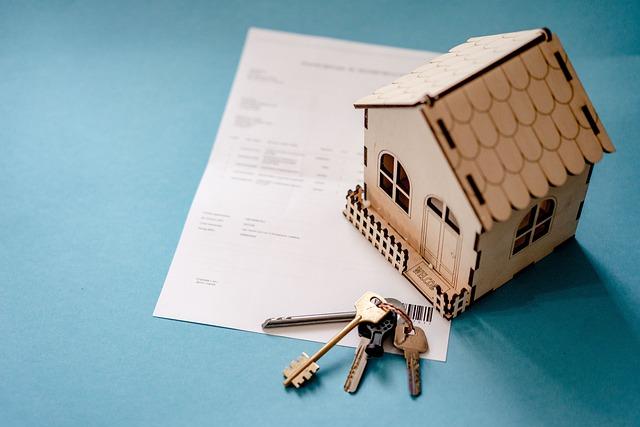In the evolving landscape of estate planning, traditional assets such as real estate have long been considered cornerstones of wealth preservation and transfer. However, as financial dynamics shift and new economic challenges emerge, the inclusion of real estate in modern estate plans warrants a critical reassessment. This article delves into the complexities and potential pitfalls of incorporating real estate into contemporary estate strategies, arguing that its traditional allure may no longer align with the goals and needs of today’s estate planners. By examining factors such as market volatility, liquidity issues, and tax implications, we aim to present a compelling case for why real estate may not be the optimal choice for a forward-thinking estate plan. Through a detailed analysis, we invite readers to reconsider established norms and explore more flexible and efficient alternatives for safeguarding and transferring wealth in the 21st century.
Challenges of Real Estate in Estate Planning
Incorporating real estate into estate planning often presents a myriad of complex challenges that can complicate the process significantly. Liquidity issues are a primary concern, as real estate is inherently illiquid and can be difficult to convert into cash quickly. This can be problematic when heirs need immediate funds for expenses such as taxes or debts. Additionally, the valuation of real estate can be unpredictable and subject to market fluctuations, making it difficult to ascertain the true worth of the asset at the time of estate settlement.
- Management complexities: Real estate requires ongoing management and maintenance, which can be burdensome for heirs who are not prepared or willing to take on such responsibilities.
- Potential for disputes: Properties often lead to family disputes, particularly when multiple heirs are involved, as differing opinions on the use, sale, or management of the property can lead to conflict.
- Tax implications: The transfer of real estate can trigger significant tax liabilities, which may not be easily mitigated without advanced planning and expert guidance.
Given these factors, it is crucial to critically evaluate the inclusion of real estate in an estate plan, considering alternative strategies that may offer greater flexibility and simplicity.

Hidden Costs and Liabilities of Property Investments
When diving into the realm of property investments, it is crucial to be aware of the often overlooked financial burdens and legal entanglements that can erode your returns. These hidden costs can significantly impact the profitability of your real estate ventures. Here are some key factors to consider:
- Maintenance and Repairs: Unlike stocks or bonds, real estate requires ongoing upkeep. Unexpected repairs or routine maintenance can quickly add up, straining your budget and cutting into your profits.
- Property Taxes: Taxes can vary widely based on location and can increase over time, often without warning. This unpredictability can make it challenging to forecast your long-term financial commitments.
- Insurance: Comprehensive property insurance is a necessity, not an option. However, premiums can escalate, especially in areas prone to natural disasters, further eating into your investment returns.
- Legal Liabilities: Owning property opens the door to potential legal issues, from tenant disputes to zoning law violations. The cost of legal counsel and litigation can be substantial, turning a seemingly lucrative investment into a financial drain.
Understanding these hidden costs is essential for anyone considering real estate as a part of their estate planning. The allure of property investments can be deceiving, often masking the underlying financial and legal challenges that could undermine your financial goals.

Diversifying Estate Assets for Long-Term Stability
In the ever-evolving landscape of financial planning, the reliance on traditional real estate as a cornerstone of estate assets is increasingly being questioned. Modern estate plans now advocate for a more diversified approach, which can enhance stability and resilience against market fluctuations. By reallocating assets into a mix of investment vehicles, individuals can potentially mitigate risks and maximize returns. Consider the following asset categories to complement your estate plan:
- Stocks and Bonds: These offer liquidity and potential growth, balancing the often illiquid nature of real estate.
- Mutual Funds and ETFs: Diversified funds can provide exposure to various sectors and reduce the risk associated with single investments.
- Precious Metals: Gold and silver can act as a hedge against inflation and currency devaluation.
- Cryptocurrencies: While volatile, they represent a new frontier of potential high returns and should be considered with caution.
By strategically diversifying estate assets beyond real estate, individuals can build a robust financial foundation that is adaptable to both current economic conditions and future uncertainties. Embracing this modern approach not only ensures long-term stability but also aligns with the dynamic nature of today’s financial markets.

Strategic Alternatives to Real Estate in Modern Estates
In today’s dynamic financial landscape, diversifying one’s estate plan beyond traditional real estate investments is both prudent and strategic. While real estate has long been considered a cornerstone of wealth-building, modern estate plans can benefit from incorporating a variety of innovative alternatives. By exploring these options, individuals can enhance their financial portfolios and achieve greater flexibility and resilience.
- Digital Assets: Cryptocurrencies and blockchain-based investments offer opportunities for substantial growth. These digital assets can provide liquidity and diversification that traditional real estate lacks.
- Green Investments: Sustainable and eco-friendly ventures, such as renewable energy projects or green bonds, align with the growing emphasis on environmental responsibility and can yield significant returns.
- Private Equity: Investing in private companies or startups allows for potential high returns and supports innovation, catering to the risk-tolerant investor.
- Art and Collectibles: Fine art, rare collectibles, and antiques can be valuable and appreciating assets that also serve as cultural investments.
- Alternative Funds: Hedge funds, venture capital, and real estate investment trusts (REITs) provide avenues for growth without the complexities of direct property management.
By incorporating these strategic alternatives, estate planners can create a robust and adaptable financial plan that meets the demands of the modern world. Embracing a diversified approach ensures not only wealth preservation but also the potential for enhanced growth and stability.



